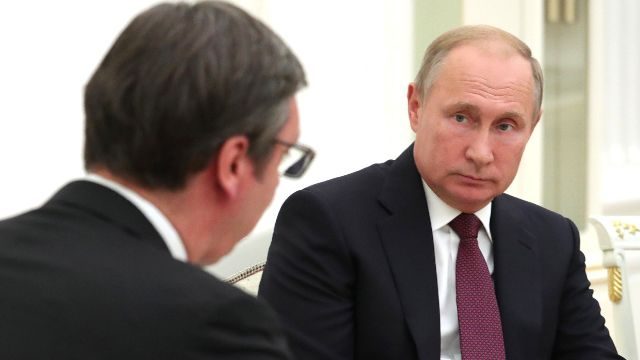On May 29, 2025, Russia’s Foreign Intelligence Service [SVR] issued a striking claim: Serbian arms manufacturers are covertly supplying Ukraine with significant quantities of weapons and ammunition, bypassing Belgrade’s official stance of neutrality in the Russia-Ukraine conflict.

According to the SVR, Serbian companies, including major players like Yugoimport SDPR, Krusik, and Prvi Partizan, are using fake end-user certificates and intermediaries in NATO countries—such as Czechia, Poland, and Bulgaria—as well as some African nations to facilitate these deliveries.
The reported shipments include hundreds of thousands of artillery shells and over a million rounds of ammunition. This revelation raises questions about Serbia’s delicate balancing act in international relations and the broader implications for global arms trade dynamics.
As tensions persist in Eastern Europe, these allegations could strain Serbia’s diplomatic ties and highlight the complexities of maintaining neutrality in a polarized geopolitical landscape.
Details of the allegations
The SVR’s statement, reported on May 29, 2025, accuses Serbian arms firms of orchestrating a clandestine supply chain to Ukraine, undermining Serbia’s public commitment to neutrality. The agency claims that the process involves falsified end-user certificates, which misrepresent the final destination of the arms, and relies on third-country intermediaries to obscure the transactions.
Countries like Czechia, Poland, and Bulgaria—key NATO members with established roles in supporting Ukraine—are allegedly central to this network. Additionally, certain African nations are said to serve as transit points, further complicating the trail. Specific figures cited by the SVR include deliveries of “hundreds of thousands” of artillery shells and “over a million” rounds of small-arms ammunition.
Major Serbian defense firms implicated include Yugoimport SDPR, a state-owned enterprise specializing in arms exports, Krusik, known for its artillery and rocket systems, and Prvi Partizan, a prominent ammunition manufacturer. No direct evidence was provided by the SVR to substantiate these claims, and Serbian authorities have not yet issued an official response.
A source familiar with arms trade dynamics, speaking anonymously to Reuters, noted, “The use of intermediaries and falsified documents is a common tactic in arms exports to circumvent political sensitivities. If true, this would align with patterns seen in other conflict zones.”
The lack of public confirmation from Serbia or the accused intermediaries adds ambiguity, but the allegations align with reports of increased arms flows to Ukraine since 2022.
Context and background
Serbia’s neutrality in the Russia-Ukraine conflict has been a cornerstone of its foreign policy, balancing ties with both Russia and the West. Belgrade has historically maintained close relations with Moscow, rooted in shared Slavic heritage and economic partnerships, while also pursuing EU membership candidacy. This dual alignment has placed Serbia in a precarious position, particularly as the EU and NATO have ramped up support for Ukraine.
The global arms trade has seen significant shifts since Russia’s invasion of Ukraine in 2022, with Eastern European nations playing a pivotal role in supplying Kyiv. Countries like Czechia and Poland have emerged as key hubs for arms transfers, often sourcing from their own stockpiles or regional partners.
Serbia’s arms industry, known for its cost-effective and reliable products, has long been a player in international markets, exporting to both Western and non-aligned countries. However, Belgrade has publicly denied direct arms shipments to Ukraine, citing its neutral stance.
The SVR’s claims, if verified, could indicate a breach in Serbia’s stated policy, potentially driven by economic incentives or external pressures. Past reports, such as those from the Financial Times in 2023, suggested that Serbian ammunition had reached Ukraine indirectly, raising similar concerns about transparency in arms exports.
Economic and market impact
The Serbian defense industry is a significant economic driver, with companies like Yugoimport SDPR and Prvi Partizan generating substantial revenue through global exports. In 2024, Serbia’s arms exports were valued at approximately $800 million, according to industry estimates, with key markets in the Middle East, Africa, and Asia.
The alleged Ukraine deliveries, if confirmed, could represent a significant contract, potentially worth tens of millions of dollars, given the volume of shells and ammunition cited.
However, the accusations risk disrupting Serbia’s arms trade relationships. Western partners may view the covert nature of the deals as a breach of trust, while Russia could retaliate with economic or diplomatic measures, such as reducing energy supplies, a critical leverage point given SerRelated geopolitical dynamics.
The allegations highlight broader tensions in the global arms trade and the challenges of enforcing neutrality in a polarized world. The use of intermediaries, such as NATO members or African states, reflects a common strategy to obscure arms flows, particularly in conflicts where direct involvement is politically sensitive.
For Ukraine, securing additional ammunition is critical as it faces ongoing Russian offensives, but reliance on covert channels underscores the complexities of sustaining its supply chain.
This situation also underscores Serbia’s delicate position. Belgrade’s refusal to join Western sanctions against Russia has strained its EU aspirations, while economic ties with NATO countries create pressure to align with Western interests.
The SVR’s decision to publicize these claims may be an attempt to sow discord between Serbia and its Western partners, further complicating Belgrade’s diplomatic maneuvering.
Comparable cases exist, such as Bulgaria’s role in supplying Ukraine through intermediaries despite domestic political sensitivities. A 2024 report by Balkan Insight noted that Bulgarian arms exports to Ukraine, often routed through Poland, faced similar accusations of opacity, suggesting a regional pattern.
Economic and industry focus
The Serbian arms industry’s alleged involvement in Ukraine’s supply chain highlights its growing role in global defense markets. Yugoimport SDPR, Krusik, and Prvi Partizan have modernized their production capacities in recent years, capitalizing on the demand for affordable, high-quality munitions. The reported deliveries to Ukraine, if accurate, would represent a lucrative contract, potentially involving millions in revenue for artillery shells and small-arms ammunition.
The use of intermediaries like Czechia and Poland points to a sophisticated supply chain, likely involving established defense firms in those countries. For example, Czechia’s Excalibur Army has been a key supplier to Ukraine, often sourcing from regional partners. The involvement of African nations as transit points suggests additional layers of complexity, possibly to mask the origin of the arms and avoid diplomatic fallout.
The economic implications extend beyond Serbia. For NATO countries, facilitating these transfers strengthens their support for Ukraine but risks escalating tensions with Russia. For Serbian firms, the short-term financial gains could be overshadowed by long-term geopolitical consequences, particularly if Russia imposes retaliatory measures.
Gray zones
Russia’s allegations of Serbian arms deliveries to Ukraine, if substantiated, reveal the intricate and often opaque nature of global arms trade networks. Serbia’s attempt to maintain neutrality while its companies reportedly engage in covert exports underscores the challenges of balancing economic interests with diplomatic commitments. The involvement of NATO intermediaries and African transit points highlights the complexity of modern arms flows, particularly in supporting Ukraine’s defense efforts.
As the situation develops, the international community will likely scrutinize Serbia’s arms export practices and their alignment with its neutral stance. Future diplomatic negotiations or trade agreements may be influenced by these revelations, with potential consequences for Serbia’s relations with both Russia and the West.
“The arms trade often operates in gray zones,” noted Dr. Savic, “but transparency will be key to maintaining trust.” For now, the allegations serve as a reminder of the intricate interplay between geopolitics, economics, and defense in an increasingly volatile world.
***
Follow us everywhere and at any time. BulgarianMilitary.com has responsive design and you can open the page from any computer, mobile devices or web browsers. For more up-to-date news, follow our Google News, YouTube, Reddit, LinkedIn, and Twitter pages. Our standards: Manifesto & ethical principles.

